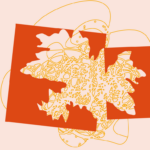 Referat Genderforschung der Univ. Wien – RGF: Ringvorlesung „Kulturelle Pluralität in Feminismus sichtbar machen“, WiSe 2023/24 (Web)
Referat Genderforschung der Univ. Wien – RGF: Ringvorlesung „Kulturelle Pluralität in Feminismus sichtbar machen“, WiSe 2023/24 (Web)
Zeit: 23.01.2024, 18.30 Uhr
Ort: Universität Wien und virtueller Raum
In 2022, Judith Butler the renowned Feminist Theorist and Philosopher gave a keynote address at an International Conference Doing Global Gender. The title of her lecture was: Who is Afraid of Gender? Riffing off that important question, Oyèrónkẹ́ Oyěwùmí will ask: Who is Not Afraid of Gender? She will respond to critiques of the gender discourse, and Butler’s own Bundling of anti-colonial critique with garden variety misogynists. Identity matters will come to the fore as we interrogate the concept of gender itself, and its meanings and impact depending on location.
Oyèrónkẹ́ Oyěwùmí is a Professor of Sociology at Stony Brook University, New York, United States of America. In 2021, Professor Oyèrónkẹ́ Oyěwùmí won the Distinguished Africanist Prize of the African Studies Association; an award given to a member of the association who has made extraordinary contributions to the field. In her award-winning book The Invention of Women: Making an African Sense of Western Gender Discourses (University of Minnesota Press, 1997), Oyèrónkẹ́ Oyěwùmí makes the case that the narrative of gendered corporeality that dominates the Western interpretation of the social world is a cultural discourse and cannot be assumed uncritically for other cultures. She concludes that gender is not only socially constructed but is also historical. Furthermore, she points out that the current deployment of gender as a universal and timeless social category cannot be divorced from either the dominance of Euro/American cultures in the global system or the ideology of biological determinism which underpins Western systems of knowledge. Oyěwùmí has published extensively and her most recent publication is Naming Africans: On the Epistemic Value of Names (Gender and Cultural Studies in Africa and the Diaspora). Oyèrónkẹ́ Oyěwùmí and Hewan Girma (eds.), (2023).
Semesterprogramm
- 24.10.2023: Magdalena Kraus: Feministische Perspektiven aus Lateinamerika
- 07.11.2023: Liselotte Abid: Islamischer Feminismus: Die Quadratur des Kreises?
- 21.11.2023: Martina Kopf: Wangari Maathai und ökofeministisches Denken in Kenia
- 09.01.2024: Denise Berghold-Caldwell: Sorge und Care als schwarzfeministische Konzepte des (Über-)Lebens
- 23.01.2024: Oyèrónkẹ́ Oyěwùmí: Who is Not Afraid of Gender?
Alle Vorträge werden online übertragen, zum Zusehen ist eine Anmeldung über die Website des RGF erforderlich (Web)
Abstracts (Web)
Ein langjähriger Streitpunkt zwischen Feminist*innen des sogenannten globalen Südens und europäischen/westlichen Feministinnen war die Tatsache, dass der westliche Feminismus die reiche Geschichte von Frauen in Afrika, Asien, Lateinamerika und dem Pazifik, die in die Vergangenheit zurückreicht, ignoriert hat. In ähnlicher Weise wird die Pluralität von Feminismen auf der ganzen Welt kaum anerkannt. Folglich sind die kulturell und historisch reichen afrikanischen, arabischen, karibischen, lateinamerikanischen, asiatisch-pazifischen und andere Feminismen in europäischen Gender-Lehrplänen immer noch unterrepräsentiert. Zudem haben viele dieser nicht-westlichen Feminismen starke kulturelle und sozio-politische Traditionen, die sie definieren und voneinander unterscheiden.
Die Ringvorlesung konzentriert sich auf die Präsenz von Feminismen in Afrika und einigen nichteuropäischen/nichtwestlichen Regionen in den Gender Studies. Somit zielt sie auf ein “feminist reimagining of communality affiliations and cultural practices, articulated not in isolation but rather in relations. It does not exalt one political concern (feminism) over another (multiculturalism); rather, it highlights and reinforces the mutual embeddedness between the two. (Shohat, 2001: 1). Wie Shohat weiter postulierte, “multicultural feminism takes as its starting point the cultural consequences of worldwide movements and dislocations of people associated with the development of ‘global’ or ‘transnational’ capitalism.” (Shohat 2001:1). Tatsächlich bringen diese Bewegungen auch eine neue Dynamik in die Entwicklung von Feminismen in jenen Teilen der Welt, die auf den kulturellen Traditionen der Menschen aufbauen. Zudem ist zu beachten, dass “like national borders, disciplinary borders too are out of synch with such transnational movements. The relational feminist approach demands moving beyond nation-bond and discipline bond teaching, curating and organizing. (Shohat 2001:1). Die Ringvorlesung nimmt Shohats Vorschlag auf, die wechselseitige Einbettung von Feminismus und kultureller Pluralität als zwei gleichberechtigten Anliegen hervorzuheben und zu stärken.
Alle Vorträge sind öffentlich zugängich und werden auch online übertragen. Für die virtuelle Teilnahme ist eine Anmeldung über die Website des RGF erforderlich (Web)
Quelle: FEMALE-L@jku.at
